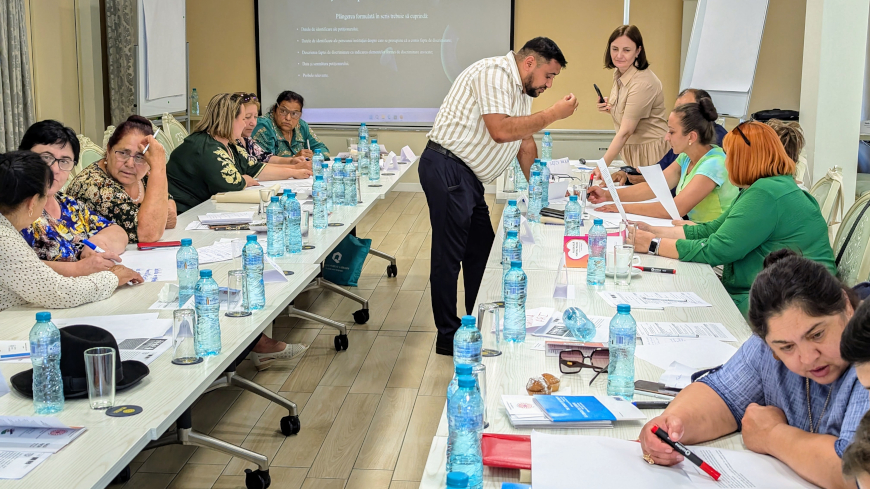23 Roma community mediators attended a training that equipped them with the skills and knowledge to tackle discrimination and effectively advocate for Roma rights at both national and local community level. This event was organised in co-operation with the Agency for Interethnic and covered issues related to racism and xenophobia, preventing and combating discrimination and hate crime against Roma persons.
The challenges Roma community mediators experience in their daily work include issues related with the documentation and reporting of discrimination cases in employment, political participation, bullying of children at school, access to public services and justice. Legal protection mechanisms based on Council of Europe standards and best practices at European level for minority protection were presented during this training, in addition to providing practical exercises when addressing law enforcement institutions: lodging complains and supporting the victims of discrimination during that process.
At the end of this event, participants identified further need to:
- Ensure an efficient protection mechanism, through co-operation between all relevant institutions (e.g., the Equality Council, Police, People’s Advocate, Ministry of Education, National Institute of Justice);
- Develop inclusive strategies that consider societal diversity and the experience of persons facing ethnic discrimination;
- Advance reforms for better protection of Roma persons, including through continuation of awareness-raising initiatives for ensuring equal treatment and addressing stereotypical attitudes towards vulnerable groups.
This event was organised in co-operation with the Agency for Interethnic Relations, as a common initiative of the following projects: European Union/Council of Europe project “Combating discrimination, hate speech and hate crimes in the Republic of Moldova”, part of the European Union and Council of Europe joint programme “Partnership for Good Governance”, Council of Europe project ”Enhancing diversity and equality in the Republic of Moldova” funded by the Ministry of Foreign Affairs of the Kingdom of the Netherlands, and the Council of Europe project ,,Promoting non-discrimination in the Republic of Moldova’’.




